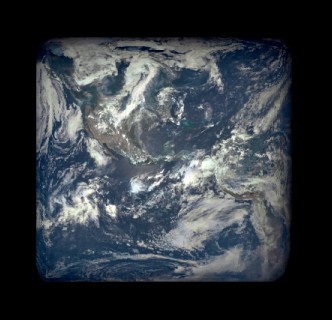 he other day I ran across a news story about a dog that ate a bunch of refrigerator
magnets and subsequently barfed up some dinosaurs and twenty letters of the alphabet.
he other day I ran across a news story about a dog that ate a bunch of refrigerator
magnets and subsequently barfed up some dinosaurs and twenty letters of the alphabet.
This dog provided us with a perfect metaphor of what our news media have become: a dog's dinner of random letters vomited across their web page accompanied by the spewing of imaginary monsters.
Day after day I read newspapers in which almost every single article is fake news. Today, for instance, besides the usual hit pieces on Trump disguised as news, the usual apocryphal stories about somebody saying the N-word, there were stories about celebrities I never heard of doing shocking things with their hair that sounded physically impossible.
Add to that the usual barrage of stories concocted from some reporter's Twitter feed, as if the reporter thinks what “influencers“ tweet actually has objective news value. And a bunch of stories breathlessly reporting such amazing scientific discoveries such as the fact that people really do create antibodies. Who knew?

Fake
So, for about an hour every morning I find myself going uh-huh, uh-huh, sure, right, sure he did, uh-huh, all the while struggling against pop-ups covering up what I'm trying to read despite two ad blockers and Noscript. Turn off JavaScript, you see nothing—maybe a clue that it's all scripted.
But it's not unique to the press. Our movies create a false version of history, as do our schools.
Most people don't realize how much of what we see and hear is a lie. When they figure it out, it's not surprising that they experience a sense of unreality.
Unreality is what Twitter is selling, which is why it's become a cesspool of hate: people see each other—and the world—as the stereotype they imagine it to be; they imagine their sense of safety to be under threat by people they can't control thinking bad things, so they use Twitter to try to neutralize the threat.
Since we're herd animals, we must convince others of something before we can truly believe it. That may be one reason we're seeing all these stories about anti-vaxxers and how their numbers are increasing, which makes them suddenly a huge threat. The writers of such stories could never say there are only six or seven anti-vaxxers, even if it were true. They must inflate the number to stampede the herd into doing what they really want but dare not say: censor opposing viewpoints by asserting that their own opinions are factual, unassailable, and scientific, and therefore their opponents' views are not worth the disk space they take up.
This conflicts with the narrative that their opponents are also Russian bots and therefore not real. Being afraid of something one knows not to be real is a sure sign of trouble.
Psychiatrists tell us that a sense of unreality is associated with depression. A recent paper in Biological Psychiatry Cognitive Neuroscience and Neuroimaging says that depersonalization/derealization disorder is associated with reduced connectivity between the body representation and the default mode network. “Default mode network” is a fancy term for the neural circuits in the brain that control autobiographical information. So in layman's terms, they're saying there's a disconnection between how your brain remembers itself and how it sees your body. Restoring this connection is said to be the goal of mindfulness, and that sounds like a worthwhile goal.
What the paper overlooks, though, is that our sense of reality is intimately connected to our sense that we have free will. If you're convinced that culture and politics are not real and you're powerless to prevent the government (or the Reptilians or the Illuminati) from taking away everything you own and spending it on itself, then you might well conclude there's little point to trying to build a business.
And maybe that's what they want you to think. Take away our self-determination, and we lose our sense of free will. From there it's only a matter of time before we conclude that we're all actors in a play.
That's what radical skepticism teaches us, but if you look into that philosophy you discover there's an upside: if we lose the concept of free will we gain the idea that there's a meaning to life. Our lives come to mean that we're on this planet to experience what it's like to be corporeal beings living in a society with other corporeal beings. Our purpose in life is to witness and understand the terrible events that are in store for the humans and to experience what it feels like to try to stop them.
Last week I started to read George Berkeley's book Principles of Human Knowledge, where he argues that nothing in the material world is real. After the first few pages I became convinced of his thesis. I concluded that Berkeley himself was not real, and neither was his book, and so I tossed it onto my growing pile of unfinished and mostly unreadable philosophy books.
The catch is that when we're actually deprived of free will we have no reason to build a business, fly to Mars, or cure a disease. All we're left with is socialist passivity where we live to consume potato chips and be entertained.
Philosophers might argue that the futility of life without free will is what we're here to understand. If we're in a play we have nothing to lose by ditching the script and changing the plot. That's the paradox: even if we have no free will, we can still exercise our free will.
Maybe that's what that wise dog was trying to teach us: don't just stay safe, live your life.
Let's see David Icke beat this one.
may 15 2020, 11:03 am
